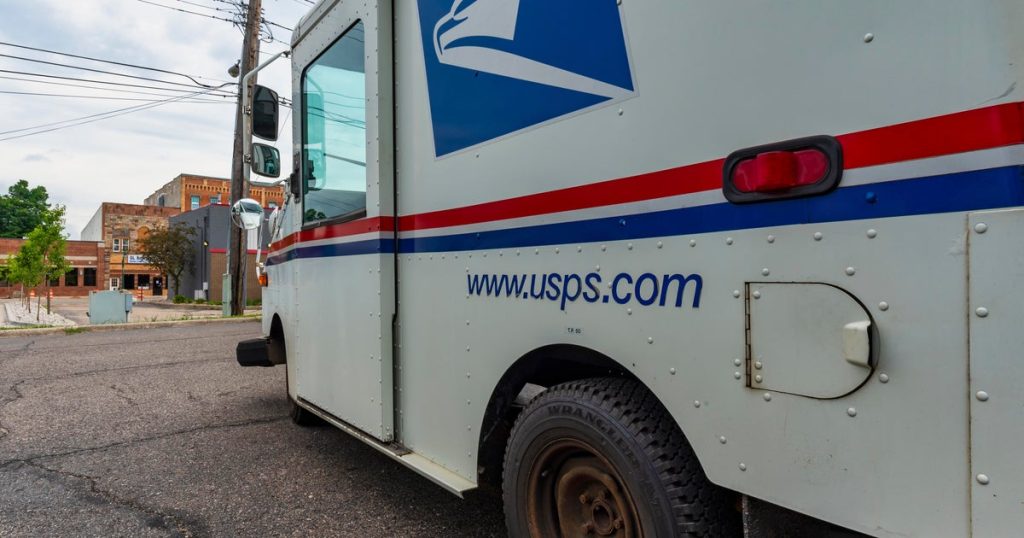In a significant development for the nation’s postal system, David Steiner, a former CEO of a major waste management company and current member of the FedEx board, has been nominated to become the 76th postmaster general of the United States Postal Service (USPS). His appointment has sparked immediate concerns among postal unions regarding potential privatization efforts of this longstanding quasi-public institution. Announced by Amber McReynolds, chairperson of the USPS’ Board of Governors, Steiner is expected to join the organization in July, pending successful completion of ethics and security clearance processes. The backdrop to this appointment involves ongoing discussions about reforming the nearly 250-year-old Postal Service, which faces financial challenges amidst a changing mail landscape.
| Article Subheadings |
|---|
| 1) Concerns from Postal Unions |
| 2) Steiner’s Background and Qualifications |
| 3) The Landscape of USPS Challenges |
| 4) Reactions from Members of Congress |
| 5) Future Implications for the USPS |
Concerns from Postal Unions
The nomination of David Steiner has raised alarms within various postal unions, which have taken to the streets to protest against the possibility of privatization, potential job cuts, and the risk of undermining the universal service obligation that has historically defined the USPS. Unions argue that Steiner’s close ties to a top competitor represent a conflict of interest, which could lead to detrimental changes for the service. Brian L. Renfroe, president of the National Association of Letter Carriers, emphasized his concerns by stating,
“His selection isn’t just a conflict of interest — it’s an aggressive step toward handing America’s mail system over to corporate interests.”
Renfroe’s union, which includes 205,000 active city letter carriers and about 90,000 retirees, views stakeholders like Steiner as symbols of a push towards privatization, potentially prioritizing corporate profitability over public service.
Steiner’s Background and Qualifications
Steiner brings a wealth of experience from his tenure as CEO of Waste Management Inc. from 2004 to 2016, alongside his current involvement with FedEx, a direct competitor to the USPS. These experiences have cultivated a reputation for strategically navigating complex business landscapes. In his written response to his nomination, he expressed admiration for the USPS’s noble mission, labeling it
“an incredible honor to be asked to lead the world’s greatest postal organization.”
Notably, he reassured stakeholders of his commitment to maintaining the USPS’s role as an independent entity within the executive branch, which is crucial for delivering universal service to nearly 167 million addresses nationwide.
The Landscape of USPS Challenges
The USPS has faced an array of challenges that have compounded over the years, including falling mail volumes, increasing competition from private carriers, and rising operating costs. A significant shift in consumer habits towards digital communication has diminished traditional mail demands, leading the USPS to enact a 10-year modernization plan aimed at revamping operations and improving financial sustainability. This initiative, known as “Deliver for America,” began under the leadership of former Postmaster General Louis DeJoy and has received mixed reviews; while it aimed for efficiency improvements, it has also drawn criticism for delays and increasing postage rates.
Reactions from Members of Congress
The nomination has not only evoked strong feelings from postal unions but also drawn attention from members of Congress who have their own views on the future of the USPS. Some lawmakers have expressed skepticism regarding Steiner’s capabilities to lead an independent, public institution, especially in light of his prior affiliations with a private competitive enterprise. Discussions within Congress have touched on alternatives that could involve the USPS being placed under the control of the U.S. Department of Commerce, aiming for a more cohesive integration of postal services with federal oversight.
Future Implications for the USPS
Steiner’s upcoming stewardship of the USPS promises to be pivotal as he navigates the intricate balance of reform and preservation of the service’s essential mandate. The apprehensions from unions regarding privatization speak to broader fears about the evolving landscape of postal services in the U.S. Steiner’s leadership will be under scrutiny as he addresses not only operational efficiency but also the fundamental values that underpin the USPS’s mission of universal service. Stakeholders and citizens alike will be watching closely to see what measures he implements and whether they align with the public interest or veer towards corporate objectives.
| No. | Key Points |
|---|---|
| 1 | David Steiner has been appointed as the new postmaster general of the USPS. |
| 2 | Concerns have been raised by postal unions over potential privatization and conflicts of interest. |
| 3 | Steiner has a background in waste management and has served on the board of FedEx. |
| 4 | The USPS is currently implementing a 10-year modernization plan after years of financial struggles. |
| 5 | Responses from Congress suggest potential new paths for USPS oversight and structure. |
Summary
The appointment of David Steiner as the postmaster general of the USPS marks a turning point for the service, embedding it within a much larger conversation about its future role in American society. As pressures mount pertaining to financial sustainability and service obligations, the upcoming months will be critical in determining the direction Steiner will take. The reactions from postal unions and lawmakers reveal deep-seated concerns about the potential impact of corporate influence on a service that has long been a pillar of American infrastructure.
Frequently Asked Questions
Question: Who is David Steiner?
David Steiner is the newly appointed postmaster general of the United States Postal Service, previously serving as CEO of Waste Management Inc. and a board member of FedEx.
Question: What concerns have been raised by postal unions regarding Steiner’s appointment?
Postal unions worry that Steiner’s ties to FedEx represent a conflict of interest and may lead to privatization efforts that threaten the USPS’s public service mission.
Question: What is the USPS’s current financial situation?
The USPS is undergoing a 10-year modernization plan to address financial challenges stemming from declining mail volumes and rising operational costs.
